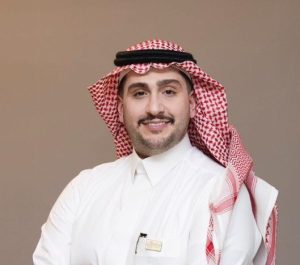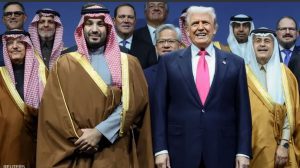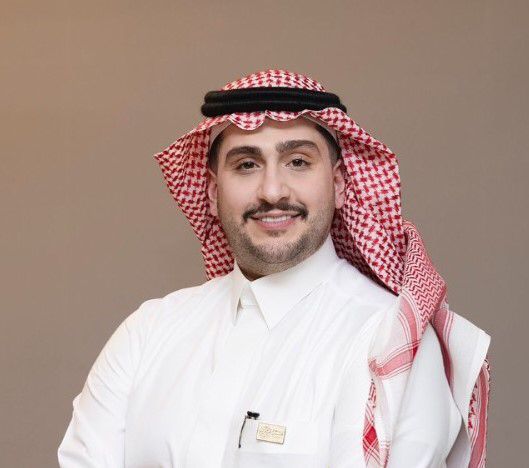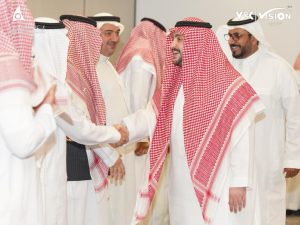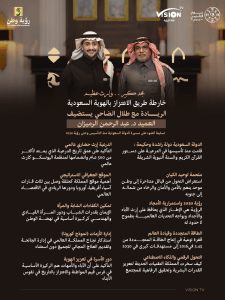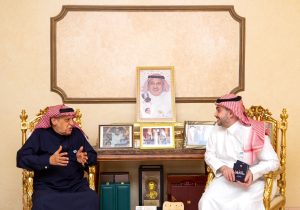By:Talal Ali Aldhahi
In a world defined by geopolitical fluidity and economic realignment, few nations have managed to reposition themselves with the strategic clarity and long-term ambition displayed by the Kingdom of Saudi Arabia. Under the leadership of His Royal Highness Crown Prince Mohammed bin Salman, the Kingdom has embarked on a transformative trajectory that is not only reshaping its internal landscape but also elevating its standing within the international system
What distinguishes Saudi Arabia today is not merely its economic strength or its critical role in global energy markets, but the emergence of a leadership philosophy that blends strategic foresight with decisive execution—an approach that has allowed the country to assert itself as a central actor in regional stability, international investment, and cross-border cooperation.
A Transformational Vision with Global Implications
Saudi Arabia’s ongoing transformation, guided by Vision 2030, has transcended the boundaries of conventional reform. It has introduced a comprehensive model for economic diversification, human capital development, technological advancement, and institutional modernization. These initiatives—spanning from giga-projects to digital infrastructure to renewable energy—have positioned the Kingdom as a dynamic hub for innovation and international partnership.
Crucially, the Kingdom’s economic modernization is no longer viewed as an internal restructuring effort alone. It is increasingly interpreted by global observers as a shift capable of influencing trade flows, investment trends, and energy transitions worldwide. By expanding its footprint in emerging industries, Saudi Arabia signals its intention to help shape the architecture of the global economy rather than simply adapt to it.
Diplomacy Anchored in Stability and Strategic Balance
One of the most notable aspects of the Kingdom’s rise is the renewed dimension of its foreign policy. Saudi diplomacy today reflects a careful balance between assertiveness and restraint, dialogue and deterrence, regional responsibility and global engagement.
The Crown Prince’s leadership emphasizes stability—not as a political slogan, but as a foundational principle for economic and geopolitical progress. This commitment has been evident in efforts to support de-escalation in regional conflicts, promote economic integration within the Middle East, and strengthen channels of communication with global powers.
Saudi Arabia’s foreign policy posture is characterized by three core pillars:
1.Predictability in Energy Policy: Ensuring balanced and stable global markets remains a cornerstone of the Kingdom’s global role.
2.Strategic Multi-Alignment: The Kingdom maintains open channels with all major powers, fostering an approach that prioritizes national interests and global cooperation over polarization.
3.Humanitarian and Development Engagement: The Kingdom has expanded its work in humanitarian support and sustainable development, emphasizing that global leadership cannot be divorced from global responsibility.
This approach has earned Saudi Arabia broader recognition as a state capable of anchoring regional order while contributing to the wider stability of the international system.
Economic Weight as a Lever of Global Influence
As global markets become increasingly interconnected and volatile, Saudi Arabia’s economic policy is gaining international attention. The Kingdom’s sovereign investment strategies, expansion into high-growth sectors, and commitment to large-scale infrastructure have amplified its influence across regions—from Asia to Europe to North America.
Foreign direct investment flows, cross-border partnerships, and public-private collaborations have strengthened Saudi Arabia’s reputation as a country capable of deploying capital strategically and responsibly. Through its economic diplomacy, the Kingdom demonstrates a nuanced understanding of how to convert financial strength into constructive long-term influence.
The Crown Prince’s emphasis on innovation—particularly in areas such as green energy, advanced manufacturing, digital technologies, and tourism—has helped reposition Saudi Arabia as a rising global competitor in sectors traditionally dominated by established economies.
Leadership and the Redefinition of National Ambition
What sets this era of Saudi Arabia apart is the scale and clarity of its ambition. The country is not merely updating its infrastructure or liberalizing its economy; it is redefining both its national identity and its global role. This transformation is inseparable from the leadership style of Crown Prince Mohammed bin Salman, whose approach is marked by:
•Strategic boldness in setting long-term national goals,
•Institutional discipline in ensuring implementation,
•Pragmatism in maintaining balanced international relations, and
•A future-oriented mindset that views innovation as the foundation of national strength.
For global observers, this combination has positioned Saudi Arabia as a state that is not simply reacting to changes in the international system but actively contributing to its evolution.
A Nation Poised for the Next Global Chapter
Saudi Arabia’s trajectory illustrates a rare alignment between vision, capacity, and opportunity. The Kingdom is increasingly perceived as a constructive global actor—one capable of influencing markets, stimulating regional growth, and contributing to dialogue across international platforms.
This rising influence does not imply abandoning regional roots or cultural identity; rather, it reflects the Kingdom’s confidence in projecting them outward through diplomacy, investment, and partnership.
As the global order continues to shift, Saudi Arabia’s role will only grow more significant. Under the Crown Prince’s leadership, the Kingdom has laid the foundations for a future in which it stands as a stable, forward-looking, and indispensable international partner—one whose voice carries weight, whose actions shape outcomes, and whose vision resonates
far beyond its borders
